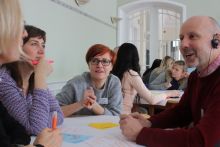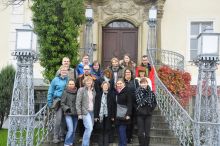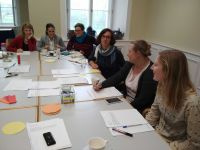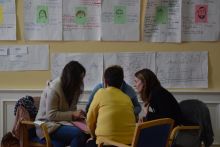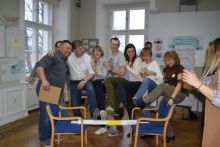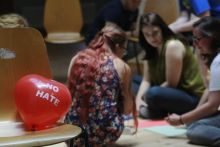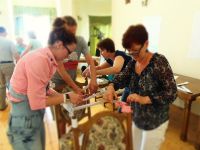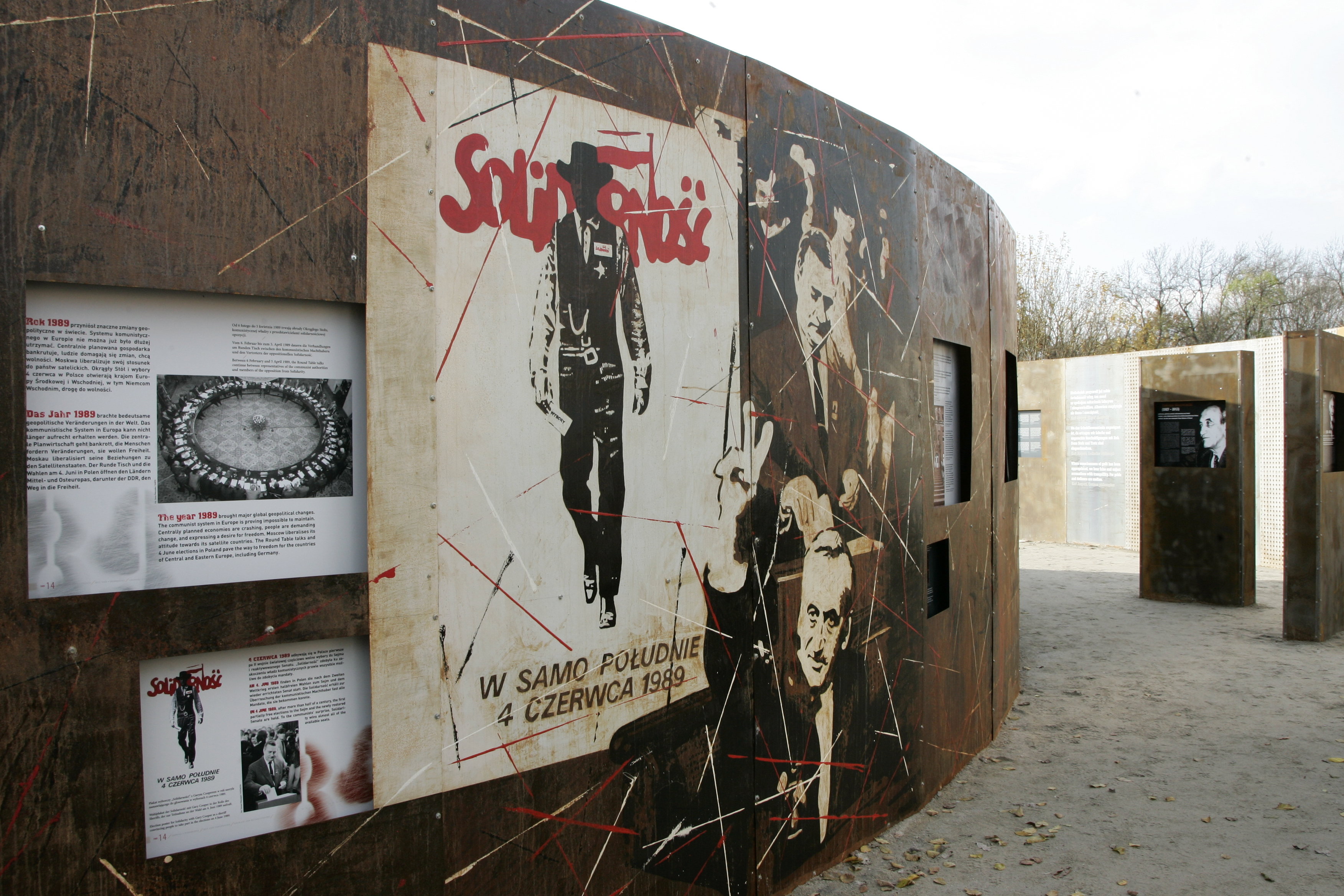
"Images, Power and Conflicts of Interpretation in Europe between 1945, 1990 and 2025"
The East-West European Memorial Meeting in Krzyżowa 2025 focuses on historical image memory in relation to the historical turning points of "80 years since the end of WWII" and "35 years since the collapse of the communist states".
The conference will focus on how the use and reception of photographs and images have shaped the memory of historical events in Eastern and Western Europe. How have they been used in memorials, museums, documentation centers and exhibitions before and after 1990? How are they used today? The aim is to take stock: How does the historical memory of images interact with these turning points today? What changed with the historical breaks in the use of images and the narratives that developed around the themes of "mass crimes," "camps," "occupation regimes," and "gestures of reconciliation? How has the treatment of images changed since the "visual turn" in the 2000s, and how has digital transformation, including the use of AI, affected the use of photographs and images today?
The memory of the Second World War is closely tied to the memory of images. While Western European countries had the opportunity for a democratic new beginning after 1945, the states of Eastern Europe came under the influence of Soviet-backed occupation regimes that established new authoritarian dictatorships.
During the Cold War, the legal processing of Nazi crimes shaped collective memory in both Western and Eastern Europe. Pictures, films, and photographic material were used as evidence in legal proceedings on both sides of the Iron Curtain. On the one hand, this kind of processing led to a multitude of new insights into Nazi mass crimes. On the other hand, the legal discourse was overshadowed by political interests, and the images were used for propaganda purposes.
In contrast, Stalinist crimes remained largely unresolved until the 1990s. In contrast to Nazi crimes, there is almost no photographic documentation of Stalinist atrocities. As an ally of the Western powers, the Soviet Union continued to be seen as the victor in the "Great Patriotic War. Critical engagement with Stalinist crimes was therefore difficult.
At the same time, gestures of reconciliation, often at odds with official narratives, came to the fore and repeatedly raised questions about historical interpretation. Since the late 1970s, civil society initiatives and the growing role of eyewitnesses have contributed significantly to the historical processing of Nazi crimes and the diversification of memory.
It was not until the profound political changes of the 1990s, which marked the end of the Cold War, that access to historical sources was opened up, allowing new perspectives on both Nazi and Stalinist crimes. This led to intense interpretative conflicts over the recognition of victims and the processing of competing memory complexes.
Thirty-five years after the end of the Cold War, these conflicts of interpretation have themselves become the subject of historical reflection.
In an era of digitalization, where eyewitness reports are decreasing and analog documents are subject to deterioration, dealing with the visual history of the Wehrmacht's racial and extermination war, the Holocaust, as well as the absence of images in the case of Stalinist crimes, has become even more crucial—especially when images of Nazi crimes are newly used as war propaganda and Stalinist violence is downplayed.
The goal of the conference is to provide museums and memorials across Europe and worldwide with a platform to exchange views on these topics, to promote networking among them, and to encourage critical reflection on shaping democratic cultures of memory. We invite experts and multipliers to participate in the discussions and look forward to a stimulating and productive dialogue.


